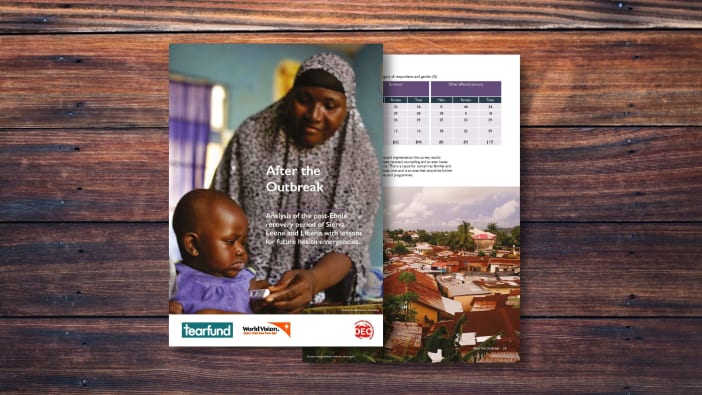Compiled from material from DCFRN and Dr Chris Curtis.
Mosquitoes carry diseases from one person to another. They are also a great nuisance. Some varieties carry malaria (Anopheles species), others dengue fever (Aedes aegypti) and others diseases known as filiariasis which causes elephantiasis (Culex species).
Mosquitoes lay their eggs in water and the mosquito larvae develop there. They use water that has collected in something as small as an old tin can or as large as a swampland.
It is very important to reduce the amount of still water around the house so that mosquitoes will not be able to find so many places to lay their eggs. Cover barrels and containers which hold water for drinking, washing and bathing. Do not leave things lying around which could hold rainwater, such as old cans, bottles, pots, and tyres. Clean drains so that water can flow easily. Fill puddles with sand. Consider building a drainage pit or soak-away if water collects in puddles around where the washing or cleaning is done.
However, some areas of water are difficult to cover. These include pit latrines, cess pits and disused wells. Sometimes a small quantity of oil has been added to water to control mosquitoes. Mosquito larvae breathe air through the water surface and the layer of oil floating on the surface would prevent them breathing and kill them. However, the oil slowly breaks down and is expensive to replace. Another kind of solution is needed.
Expandable polystyrene beads are produced for use as packing and insulation material. Polystyrene is a very light material which floats on the surface of water. Experiments were carried out using different sizes of these polystyrene beads. The beads would float on the surface of the water forming a think ‘carpet’. When smaller beads were used (ideally 2mm in diameter), the mosquito larvae were unable to breathe through this layer. If pit latrines dried up during the dry season the beads would again float to the surface once the rainy season began.
The beads will also last for many years. When small beads are used the layer of beads does not need to be more than 1cm think to destroy all the larvae. If larger diameter beads are used then the layer may need to be 2 to 3cm thick.
Tests were carried out in the town of Makunduchi, Zanzibar, in Tanzania. The town had about 1,700 pit latrines and cess pits, of which about a third contained water and mosquito larvae. All pits known to contain water were treated in 1988. The following year there was a huge reduction, 98%, in the biting population of mosquitoes.
The type of mosquitoes which breed in these deep pits is not usually the malaria-carrying type of mosquito, but the Culex type which carry filariasis and cause great nuisance from biting.
There have been no complaints about pollution or any other problems from the use of the beads. This experiment is now being extended to cover the whole of Zanzibar town. The beads are available in the town, free of charge (thanks to a donation from the Shell Company). Information is given about how to use the beads and apply them. The beads can be supplied in their unexpanded form which looks like sugar. On heating, either in a nearby factory or simply in householder’s cooking pots, the beads will expand by thirty times, ready to use.
There have been some mis-understandings. People sometimes think the beads should be put down all pits – even those which are never wet. Some people have believed that the beads were some kind of poison and that a small handful would kill the mosquito larvae.
Groups interested in purchasing quantities of expandable beads can write to: Shell International Chemicals, (Attn Peter Taylor, Dept CTMP/24), Shell Centre, London, SE1 7PG UK,
asking for details of Styrocell Grade R543 FE, or to BASF, (Attn Jost, LAV/KA), Ludwigshafen, Germany, asking for details of Styropor Grade P355.
The unexpanded material is usually available in drums of 125kg (enough for 50-100 pits) which must be kept sealed until needed.
It might be worth finding out if this material is available in your own country first. Another possibility, if only small quantities or polystyrene beads are needed for one household pit latrine, would be to try to obtain polystyrene packaging material from a dump or from shops supplying electrical goods. Some packaging material will crumble easily and could be used. This would not be as effective as the beads, but simple experiments have found that a thick layer of this crumbled material prevents the larvae from emerging into mosquitoes, although it is not so effective at preventing them from breathing.
Dr Chris Curtis works in the Department of Medical Parasitology at the London School of Hygiene and Tropical Medicine, Keppel Street, London, WC1E 7HT, UK.









